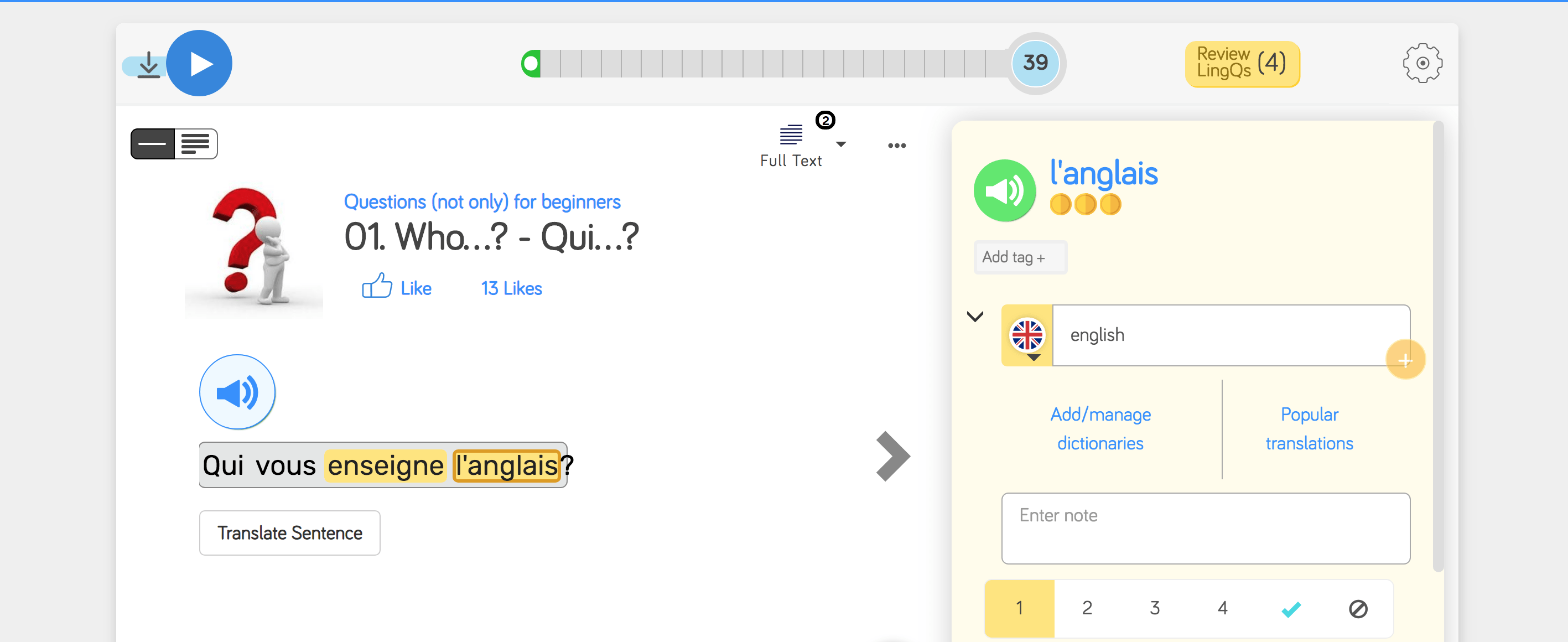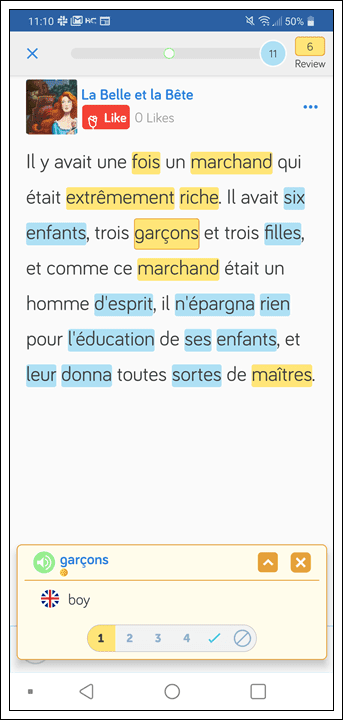French Question Words: Get It Right Every Time
So you want to be able to ask questions in French?
Back when I was at school in English class, we learnt about who, what, when, where, why and how, and it went down a treat.
Then, fast forward to high school where we started learning French, and they taught us long, protracted ways of asking questions in French.
As school kids, we didn’t get out much, so our French hadn’t had much of a chance out in the real world, and mainly existed in the pages of our notebooks. This was way before there was technology in classrooms, we barely had a cassette player to listen to the French audio on tape for our listening exams never mind getting to watch a French film or YouTube video.
So, you can imagine my surprise several years later as a teenager visiting France to hear that most of what we learnt at school and through our exams would be perceived as a very formal and stiff way of speaking?
When I found out that no one actually says, like we’d been taught, “quelle heure est-il?”. For starters, informally people would say “quelle heure il est?” “il est quelle heure?”, or “c’est quelle heure” but in fact you’re much more likely to hear “vous avez l’heure (s’il vous plaît)?”, which ties in well to our expression “do you have the time?”, in English because it also uses to have – avoir in French.

Likewise, the structured “d’où venez vous?”, or “vous venez d’où?”, that we’d faithfully copied out in our notebooks was cut down to size to the more casual tu form, “d’où est-tu?”, “d’où viens-tu?” but you are even more likely to hear the informal and direct “tu es d’où?” or “tu viens d’où?”
So learning the French question words “n’est pas une mince affaire” – is no mean feat, no easy task.
LingQ makes it easier though! There are lots of lessons in the French library that focus on questions. Just read through the lesson and translate any words or phrases you don’t know. You will see those words and phrases more and more in future lessons until you know them. It’s that simple! Why not make a start with this lesson.

French Question Words: The Basics
French does have the same interrogative words and expressions as English, which should make things easier for English speakers.
Here is a list of the most common French question words and their English equivalents:
quand – when
à quelle heure – at what time
qui – who
qui est-ce que – who (referring to a subject)
qui est-ce qui – who (referring to an object)
avec qui – with who
pour qui – for who
comment – how
combien de – how much/many
où – where
d’où – from where
pourquoi – why
pour quelle raison – for what reason
quoi – what
qu’est-ce qui – what (referring to a subject)
que/qu’est-ce que – what (referring to an object)
quel – what/which
The next tool you need use French question words is “est-ce que” which loosely translates to is it that, or even, is that so.
Form a simple sentence and add “est-ce que” to create a basic question.
Tu achètes un café – you buy a coffee
Est-ce que tu achètes un café – are you buying a coffee?
To make this more specific, you can add any of the list of interrogative words above in front of your newly created “est-ce que” phrase.
Pourquoi est-ce que tu achètes un café – why are you buying a coffee?
Quand est-ce que vous allez en vacances? – when are you going on holiday?
Combien d’enfants est-ce qu’ils ont? – how many children have they got?
Qu’est-ce qu’elle attend? – what is she waiting for?
Grammar Point
The word “que” becomes “qu’” before a vowel, as you can see in the third example. Note that “qui” – who, doesn’t make this same change and remains in its original form.
Inversion
Questions can also be created by using inversion. Now we don’t have anything like this in English!
Simply swap over or invert the verb and the subject of your phrase and insert a hyphen between them.
So “tu achètes un café” – you are buying a coffee becomes “achètes-tu un café?” – are you buying a coffee?
Add the question word at the beginning again to get even more specific, like we did in the previous example.
And don’t forget your question mark, this should be easy for English speakers, and they are used in exactly the same way in French and we use them in English.
Pourquoi achètes-tu un café? – why are you buying a coffee?

Grammar Point
If the question includes a person’s name, it has to go before the verb, at the beginning of the basic question.
This is all to do with a trend in European or Romance languages of placing the person at the front of the sentence to show they are the most important part of the phrase. Compare the sentences:
1. My dad built this house
2. This house was built by my dad.
A lot of languages favour the structure of the first sentence, making the subject (dad) the key focus of the sentence, rather than the object (house), some even interpret it as a subtle sign of respect.
Pourquoi Pierre achète-t-il un café? – why is Pierre buying a coffee?
The last thing to cover is the French word ‘où’- where, which doesn’t follow the same pattern. If there is one thing you’ve learned about French by now, it’s that there is always something that doesn’t fit the pattern. To use où follow this structure: où + verb + any subject (noun or pronoun). If it is a pronoun, you need to link it to the verb with a hyphen.
Inflection
One other major similarity to English is that French speakers also speak with inflection.
This means that when asking a question they often speak in an ascending tone and end the sentence on a high note. This is called inflection.
Of course you can try and remember to do this but inflection and tone are really things that are learnt through practice, as we do them instinctively. Just try and remember that the emphasis will usually fall on the last syllable(s) when asking a question, and this will probably be in a noticeable higher pitch than the first part of the sentence.
We’ve touched on a few grammar points today, so while you’re on that topic you might want to brush up on a few more pieces of grammar. Try checking out our LingQ French Grammar Guide and good luck!
Learn French Faster Using LingQ
Immersing yourself in French doesn’t require you to travel abroad or sign up for an expensive language program.
However, it can be a bit tiresome to find interesting content, go back and forth between sites, use different dictionaries to look up words, and so on.
That’s why there’s LingQ, the best way to learn French online because it lets you learn from content you enjoy!

You can import videos, podcasts, and much more and turn them into interactive lessons.
Keep all your favourite French content stored in one place, easily look up new words, save vocabulary, and review. Check out our guide to importing content into LingQ for more information.
LingQ is available for desktop as well as Android and iOS. Gain access to thousands of hours of audio and transcripts and begin your journey to fluency today.
***
Ella Louise Finn is a Freelance French & Spanish to Native English Translator, Proofreader, Copywriter and Transcriber, now based in Glasgow, Scotland, after spending time in Argentina and France honing her language skills.


